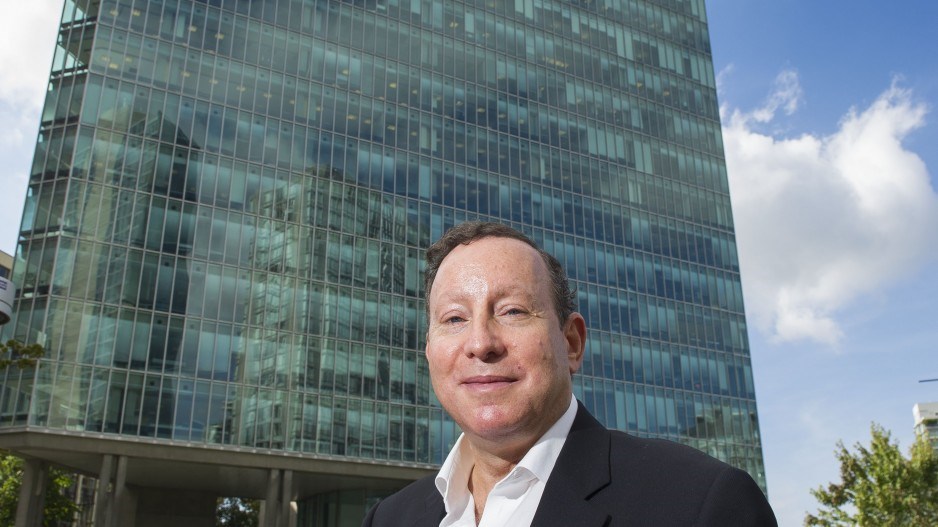Higher density allowances under Vancouver’s new and controversial West End Community Plan (WECP) have increased property prices along major thoroughfares and spurred several real estate transactions, according to industry insiders.
Bosa Properties and Kingswood Properties’ $120 million acquisition last month of the former Crown Life building at 1500 West Georgia Street is the latest and priciest of these transactions to close.
The WECP provides the policy framework for the site’s owners to build a 400-foot tower on a 6,500-square-foot base in the site’s courtyard, which is now a plaza and pool.
Bosa and Kingswood bought the 37-year-old, 200,000-square-foot green-glass tower from the Healthcare of Ontario Pension Plan (HOOPP).
Both Kingswood president Lorne Segal and a HOOPP representative confirmed to Business in Vancouver that a density hike on the site thanks to the WECP was a key factor in the deal.
HOOPP’s business plan is to own long-term, income-producing properties, not develop buildings.
“When the WECP was approved, it made the whole property more valuable,” explained Avison Young (AY) principal Bob Levine, who helped broker the deal alongside fellow AY principals Michael Gill and Darrell Hurst.
Segal told BIV that he has been interested in the site for years but that he and partner Colin Bosa would not have bid $120 million for it had they been buying only a building.
“Clearly, you couldn’t justify the purchase price for the building itself,” Segal said. “The bonus was that at some point there would be an opportunity to develop something that would complement the building.”
The 1500 West Georgia Street transaction follows Wall Financial Corp.’s (TSX:WFC) $83.5 million purchase from a private family of the city block bounded by Alberni, Nicola and Broughton streets and the lane between Alberni and Robson streets.
City of Vancouver assistant director of planning Kevin McNaney told BIV that Wall Financial’s property is similar to the 1500 West Georgia Street site in that the WECP gives its owner the opportunity to build a 400-foot tower on a 6,500-square-foot footprint.
The WECP also affected a third site that recently changed hands.
In June, an unnamed buyer bought Davie Street’s Best Western Sands Hotel from B.C.-based R.P.B. Holdings for $31 million in a transaction that, according to brokers, ranks as one of the most expensive per unit in B.C. history.
Levine said that while these recent transactions are large, the WECP did not provide each with the same density bump.
“Different sites have different designations,” he said. “On 1500 West Georgia, you could build condominiums there basically as you see fit.
“At the Sands site, [the city] will limit you to have 20% social housing or if you don’t do condominiums you could do market rental.”
But critics, such as West End Neighbours director Randy Helten and Vancouver Cedar Party mayoral candidate Glen Chernen, say that little positive will come from these transactions even though McNaney stressed that WECP also addresses the need for amenities.
“We’re looking at density being dumped on the neighbourhood and losing community amenities,” Helten said.




